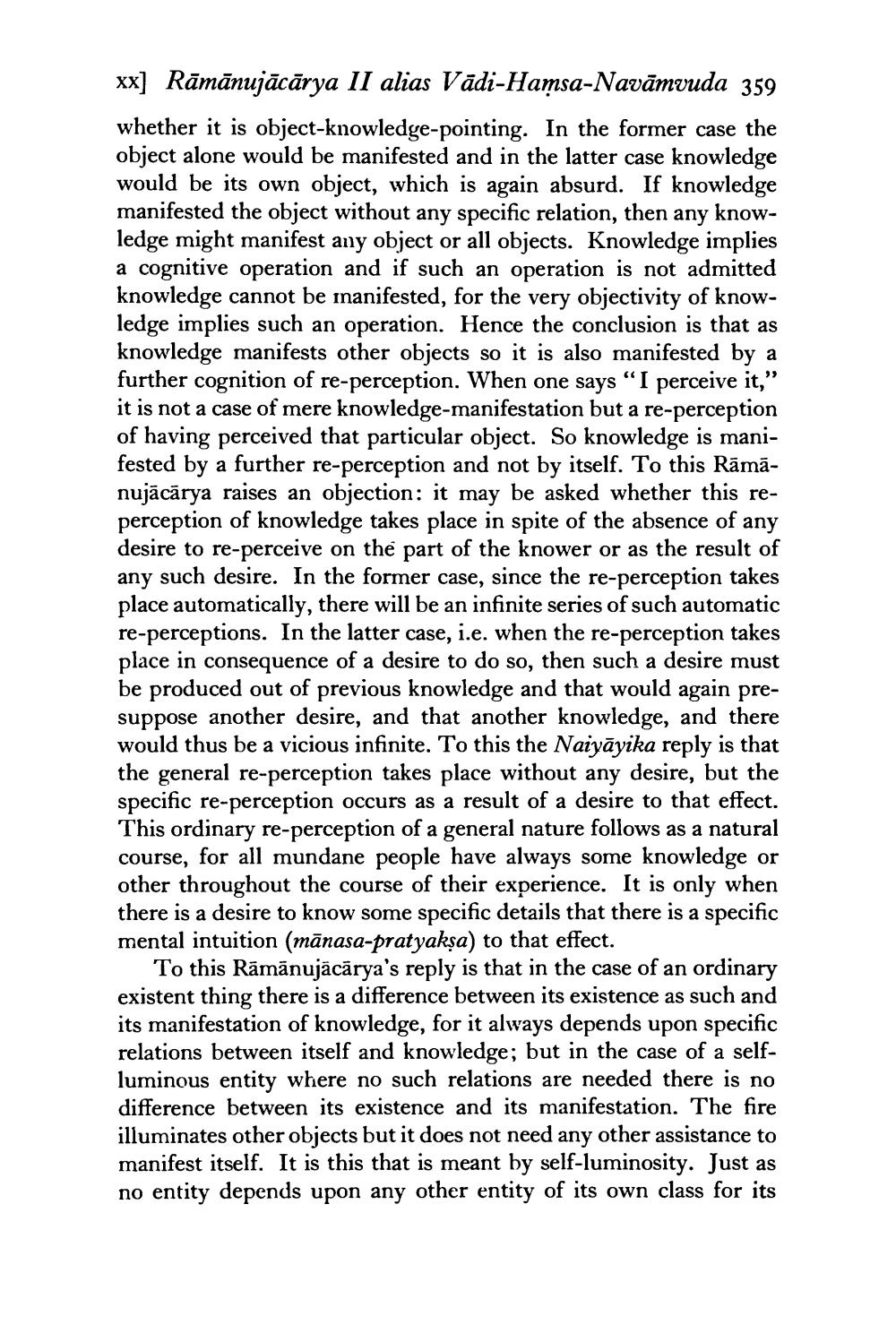________________
xx] Rāmānujācārya II alias Vādi-Hamsa-Navāmvuda 359
whether it is object-knowledge-pointing. In the former case the object alone would be manifested and in the latter case knowledge would be its own object, which is again absurd. If knowledge manifested the object without any specific relation, then any knowledge might manifest any object or all objects. Knowledge implies a cognitive operation and if such an operation is not admitted knowledge cannot be manifested, for the very objectivity of knowledge implies such an operation. Hence the conclusion is that as knowledge manifests other objects so it is also manifested by a further cognition of re-perception. When one says "I perceive it," it is not a case of mere knowledge-manifestation but a re-perception of having perceived that particular object. So knowledge is manifested by a further re-perception and not by itself. To this Rāmānujācārya raises an objection: it may be asked whether this reperception of knowledge takes place in spite of the absence of any desire to re-perceive on the part of the knower or as the result of any such desire. In the former case, since the re-perception takes place automatically, there will be an infinite series of such automatic re-perceptions. In the latter case, i.e. when the re-perception takes place in consequence of a desire to do so, then such a desire must be produced out of previous knowledge and that would again presuppose another desire, and that another knowledge, and there would thus be a vicious infinite. To this the Naiyayika reply is that the general re-perception takes place without any desire, but the specific re-perception occurs as a result of a desire to that effect. This ordinary re-perception of a general nature follows as a natural course, for all mundane people have always some knowledge or other throughout the course of their experience. It is only when there is a desire to know some specific details that there is a specific mental intuition (mānasa-pratyakṣa) to that effect.
To this Rāmānujācārya's reply is that in the case of an ordinary existent thing there is a difference between its existence as such and its manifestation of knowledge, for it always depends upon specific relations between itself and knowledge; but in the case of a selfluminous entity where no such relations are needed there is no difference between its existence and its manifestation. The fire illuminates other objects but it does not need any other assistance to manifest itself. It is this that is meant by self-luminosity. Just as no entity depends upon any other entity of its own class for its




